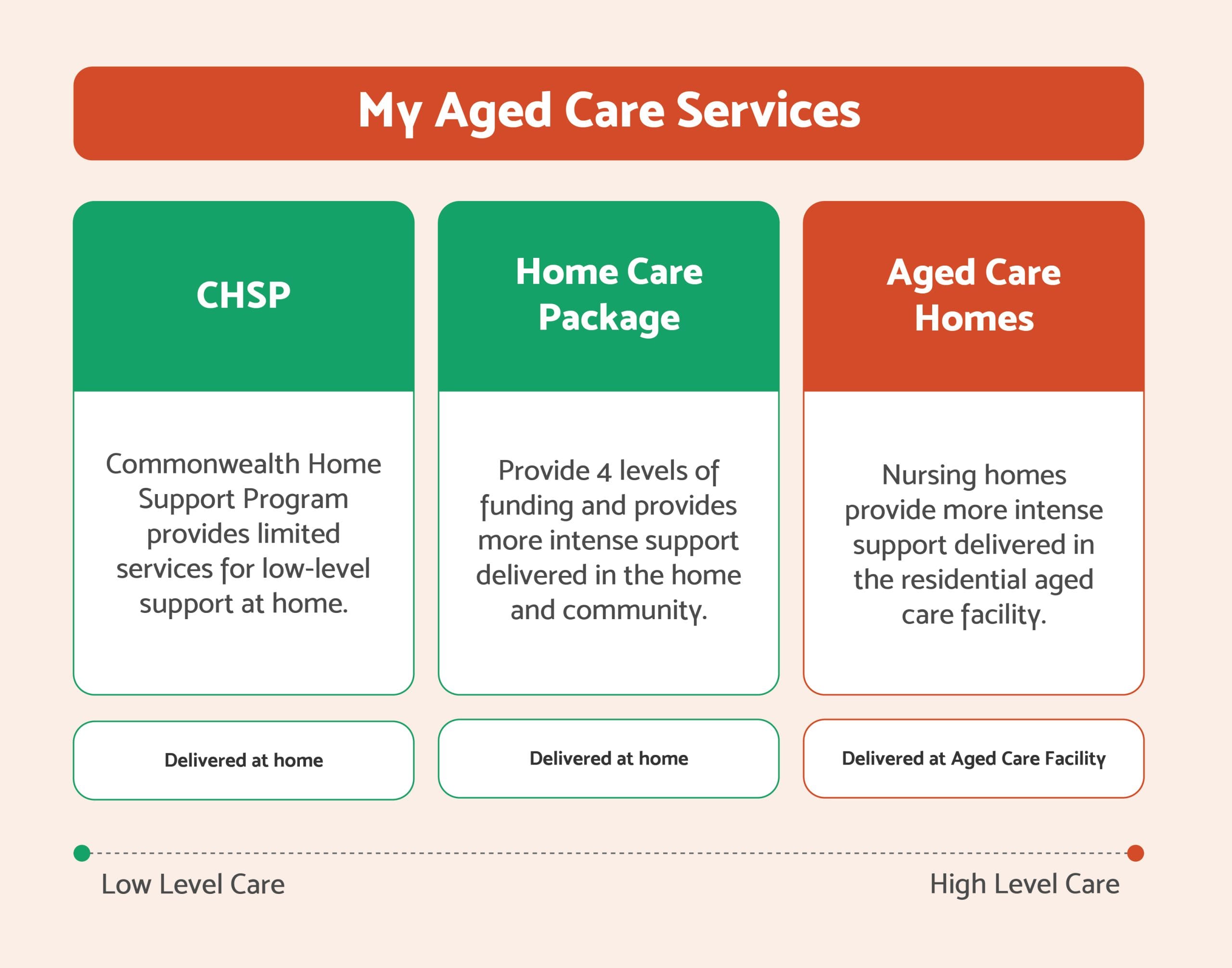Detailed walkthrough to working with home care providers under the NDIS
Detailed walkthrough to working with home care providers under the NDIS
Blog Article
The Relevance of Home Treatment in Disability Support: Checking Out NDIS Registered Solutions
Home treatment is an essential aspect of handicap support, especially within the structure of NDIS registered remedies. It supplies essential services that foster self-reliance and improve general quality of life for people with impairments. By using customized support, these solutions deal with special demands and preferences. The performance of home care counts on ongoing communication with NDIS planners. This vibrant relationship reveals much deeper understandings right into the transformative capacity of tailored assistance. What obstacles and successes emerge in this progressing landscape?
Understanding the Role of Home Care in Special Needs Assistance
Home treatment plays an essential function in the assistance of individuals with impairments, giving considerable solutions that promote freedom and enhance lifestyle. It encompasses a series of support tailored to fulfill the unique needs of each individual, consisting of individual care, family jobs, and flexibility support. Trained caretakers use friendship and emotional assistance, promoting significant links that fight social isolation.Furthermore, home treatment services are created to adjust as scenarios alter, ensuring that individuals obtain the appropriate level of treatment throughout their lives. This adaptability permits the combination of brand-new therapies or innovations that may emerge. By prioritizing the individual's preferences and routines, home care encourages them to keep control over their everyday tasks. Inevitably, the duty of home treatment in special needs support is vital, as it not only supplies sensible aid yet also verifies the dignity and autonomy of those it serves.

Advantages of Personalized Support in the house
Individualized help at home deals various advantages tailored to private requirements - support at home. By creating customized support plans, caretakers can substantially boost the independence of people with specials needs. This approach not only promotes autonomy yet additionally promotes a sense of dignity and self-worth
Customized Support Strategies
Customized assistance plans play a necessary role in enhancing the top quality of life for people with specials needs. These personalized plans are made to deal with the unique demands and preferences of each individual, ensuring that support services straighten with their particular goals and way of living. By involving clients in the planning procedure, customized support plans promote a feeling of possession and empowerment. This individualized method permits caretakers to give appropriate support, whether it entails daily living activities, social interaction, or ability advancement. In addition, tailored plans can adapt to transforming scenarios, showing the advancing demands of the person. Eventually, this personalized assistance boosts not just everyday working but additionally emotional health, reinforcing the significance of a personalized technique in special needs assistance solutions.
Enhanced Independence Opportunities
People with disabilities profit substantially from personalized aid at home, as it advertises improved self-reliance possibilities. Customized support allows individuals to participate in day-to-day tasks with higher self-confidence and autonomy. Home care solutions can include help with personal treatment, meal preparation, and house administration, making it possible for customers to preserve their routines and choices. This customized approach promotes a feeling of control, empowering people to make options that mirror their special demands and goals. Additionally, the comfort of home develops a familiar environment, minimizing anxiety and enhancing psychological wellness. Overall, tailored support not only sustains necessary everyday tasks yet also grows a much more independent lifestyle, allowing people with disabilities to grow within their communities and accomplish better personal gratification.
Introduction of NDIS Registered Home Treatment Providers
NDIS signed up home treatment services include numerous kinds of support tailored to individuals with impairments (home care package providers). Understanding eligibility and accessibility to these services is important for making the most of the benefits of NDIS assistance. This overview will highlight the vital elements of home treatment under the NDIS framework
Types of Home Care
Home care services play a vital function in sustaining people with disabilities, providing a series of alternatives to fulfill diverse demands. NDIS signed up home treatment solutions consist of personal treatment, which assists individuals with everyday activities like showering and dressing. Residential support assists maintain a tidy and secure living setting, while break care provides short-term relief for primary caregivers. Area gain access to solutions enable engagement in social and recreational tasks, fostering freedom and link. Additionally, nursing care provides medical support at home, ensuring health demands are met. Treatment solutions, consisting of work-related and physical rehabilitation, help in recovery and ability growth. With each other, these different kinds of home care add substantially to boosting the high quality of life for people with impairments.
Eligibility and Gain access to
Exactly how can one access the essential home treatment services given under the NDIS? To certify for these services, people need to fulfill certain eligibility requirements detailed by the National Special Needs Insurance Plan. Candidates have to demonstrate a considerable and permanent handicap that affects their daily my company functioning. The process begins with submitting an Accessibility Request Form, that includes documentation of the impairment and its impact on day-to-day live. Once approved, individuals receive a personalized plan outlining their required supports, including home treatment solutions. These solutions can be accessed via NDIS-registered companies, that need to abide by strict high quality and safety and security criteria. Comprehending these actions assurances individuals can efficiently navigate the NDIS system to obtain the required assistance for their home care needs.
Advantages of NDIS Assistance
Accessing essential support via signed up services offers individuals with specials needs a transformative possibility to improve their top quality of life. NDIS signed up home care solutions supply customized assistance, making sure that each individual's special demands are satisfied. These services include a large range of supports, including individual care, mobility aid, and healing solutions, all designed to promote independence and health. Additionally, signed up providers adhere to strenuous top quality standards, guaranteeing a high degree of treatment and security. Individuals also gain from raised versatility, allowing them to choose service shipment approaches that best match their lifestyles. Inevitably, NDIS assistance promotes a sense of community and empowerment, making it possible for people with disabilities to engage more fully in their lives and accomplish personal objectives.
Tailoring support to individual needs is vital in special needs treatment, as everyone's circumstances and preferences differ substantially. The National Impairment Insurance Policy System (NDIS) highlights the value of individualized care strategies that reflect the one-of-a-kind objectives and requirements of each participant. This technique enables caregivers to concentrate on certain locations such as movement assistance, daily living abilities, and emotional assistance, guaranteeing that solutions are relevant and reliable.
Enhancing Quality of Life With Home Care
While several people with specials needs face unique difficulties, home care solutions can substantially boost their top quality of life by supplying customized assistance in familiar surroundings. These services cultivate check over here independence, enabling individuals to involve in everyday tasks that promote self-worth and personal satisfaction. With customized care plans, home care service providers can resolve details demands, whether it involves support with personal health, dish prep work, or medication management.Moreover, home treatment assists in social communications, urging connections with friends and family, which are crucial for emotional health. By staying in their own homes, people experience a feeling of stability and connection, reducing anxiety linked with unknown settings. On top of that, caretakers can provide friendship, helping to reduce sensations of seclusion. On the whole, home care not only addresses physical needs yet also enriches the social and emotional measurements of life for individuals with disabilities, eventually leading to a more meeting and enjoyable existence.
Browsing the NDIS for Home Treatment Solutions
Guiding through the National Disability Insurance Coverage Plan (NDIS) can greatly affect the performance of home care services for people with handicaps. Comprehending the NDIS structure is important for participants seeking ideal financing for home treatment solutions. This process begins with identifying specific needs and objectives, which aids in tailoring assistance plans that align with the individual's requirements.Navigating the NDIS includes familiarizing oneself with the qualification criteria, application procedures, and the planning procedure. Participants should engage with NDIS coordinators to review their certain situations and wanted end results. This discussion assures that the needed home treatment services, such as individual care, aid with daily living, and therapeutic support, are consisted of in their plans.Furthermore, remaining updated on NDIS plans and any changes in financing can empower individuals to make informed options concerning their home care choices, eventually enhancing their independence and lifestyle.
Success Stories: Equipping Lives Through Home Treatment
Home care solutions have actually transformed the lives of several people with impairments, demonstrating the profound impact of tailored assistance. Sarah, a young lady with cerebral palsy, obtained freedom through customized home care support that allowed her to participate and manage daily jobs in neighborhood tasks. In a similar way, John, that has autism, benefited from a specialized caregiver that aided him develop social skills and foster meaningful relationships, boosting his high quality of life. These success stories highlight just how home treatment not just satisfies physical requirements but likewise promotes psychological well-being. Households report enhanced comfort, understanding their enjoyed ones receive professional and compassionate support in an acquainted setting. As these examples illustrate, home care empowers individuals with handicaps to thrive, encouraging self-sufficiency and enhancing total life contentment. The transformative results of such solutions underscore the relevance of home treatment in the wider context of handicap support.

Often Asked Questions
How Can I Discover NDIS Registered Home Care Providers in My Area?
To locate NDIS signed up home treatment providers in a particular location, people can visit the NDIS website, utilize the service provider finder tool, or call neighborhood impairment support companies for suggestions and assistance.
What Certifications Should Home Care Workers Possess for Handicap Assistance?
Home care workers for handicap assistance need to ideally possess credentials such as a Certificate III in Individual Support, relevant experience, strong communication abilities, empathy, and knowledge of handicap legal rights and person-centered care practices.
Are There Any Type Of Costs Linked With NDIS Registered Home Care Solutions?
Prices associated with NDIS registered home treatment solutions can vary based upon specific requirements, solution providers, and the level of care required. Individuals need to examine their plans to recognize certain financing and possible out-of-pocket costs.
Can Home Treatment Services Accommodate Particular Social or Language Requirements?

Exactly How Often Can I Adjustment My Home Care Assistance Strategy?
Individuals can normally change their home treatment support strategy as needed, commonly a minimum of every year or upon considerable life modifications. Normal reviews assure that the strategy stays appropriate and successfully addresses evolving individual circumstances and requirements. Educated caregivers provide companionship and psychological assistance, cultivating significant connections that combat social isolation.Furthermore, home treatment solutions are developed to adjust as circumstances transform, making certain that people obtain the proper level of care throughout their lives. Home treatment services can consist of support with personal treatment, meal prep work, and household monitoring, enabling clients to preserve their preferences and regimens. NDIS registered home care services include individual treatment, which assists individuals with daily tasks like bathing and dressing. Via customized care plans, home treatment companies can address specific requirements, whether it includes aid with individual hygiene, dish preparation, or medication management.Moreover, home care helps with social communications, encouraging connections with household and pals, which are essential for psychological health. Costs associated with NDIS registered home care solutions can vary based on private read review needs, service suppliers, and the level of care needed.
Report this page